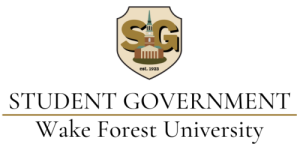Staff Editorial: Election engagement must extend into future
November 12, 2020
Nine days after Election Day, North Carolina has yet to be called in the race for president. While President Donald Trump has a modest lead, President-elect Joe Biden is only trailing by 1.3 points. As the state’s demographics change, so does its electorate, which means that North Carolina will definitely be a battleground state for the foreseeable future. What does this mean for the university?
First and foremost, we must ensure that students’ engagement in politics continues in a post-Trump America. This election has been unique in many ways, but is also consistent in the truths it presents: citizens have the power to change the course of our country, from the local to federal level, by voting. The energy and excitement conjured up this November must be remembered in 2022, 2024 and beyond. The Editorial Board is excited by the work that Deacs Decide has done this semester to build a get-out-the-vote infrastructure on campus, and is confident that they will only build upon it in the coming years.
Continuing on the point of creating excitement about exercising one’s right to vote, we believe that the addition of the First Assembly Church as an early voting site was pivotal in ensuring that Wake Forest students exercised their right to vote. College students have been historically disenfranchised, and the ability to secure this polling place should be applauded. According to the Old Gold & Black’s election poll of 221 students, 53% voted early and 65.6% voted in North Carolina. We hope that the university, in a COVID-free future, would consider adding a polling place on campus that is available both for early-voting and voting on Election Day.
Wake Forest students have the ability to shape both the North Carolina and national outcome for years to come.”
National politics has always held a presence on Wake Forest’s campus. Tour guides still often reminisce with families about the presidential debate that took place within the hallowed halls of Wait Chapel between then-governor George W. Bush and Vice President Al Gore in 2000. Twenty years later, Wake Forest seems primed to take on an even more active role in national politics, as our campus remains more politically engaged than ever. Many have chalked up this election to a “once in a lifetime” event that garnered record turnout to the likes of which we may never see again. Rather than accept this as fact, university students should view the election as a jumping off point in which they can continue to advocate for better voting processes and promoting the importance of civic engagement to their friends and peers.
As North Carolina maintains its status as a swing state with an increasingly divided electorate that captures a roughly equal percentage of the state’s votes, any small movement in voter turnout produces massive waves. Wake Forest students have the ability to shape both the North Carolina and national outcome for years to come. Until then, the Editorial Board extends our gratitude to political student organizations as well as the students, faculty and staff members who volunteered their time and prioritized voting rights for Forsyth County residents.











